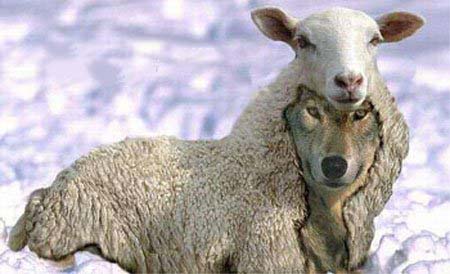
by John P. Pratt
7 Mar 2021, 13 Storm (SR), 0 Quickening (V), Begin Transplating (J),
Begin Nourishing (UJ), 1 Priest (P), Covenant (S), Lights (UH), Esther (T)
©2021 by John P. Pratt. All rights Reserved.
|
1. Common Consent 2. Church Organization 3. Illegitimate President 4. Reborn LDS Church 5. Conclusion Notes |
The Prophet Joseph Smith lamented that Church members depended too much on him, which darkened their minds. He emphasized that each person should stand for himself and depend on no man.[1]
 |
The law of common consent of the Church membership was not designed to be merely a "rubber stamp" of perfunctory, mindless approval, but it is one method of checks and balances to prevent predators from commandeering the Good Ship Zion. As for those who chant, "The Lord will never allow his Church to be led astray", they should know that such false doctrine is found nowhere in the scriptures, but is taught by the wolf pack themselves. The fact is that the Lord's Church has fallen into apostasy every time it has appeared, except for the few times when the group was aware enough not to be deceived by Satan, in which case they were usually translated.
This article discusses how important the law of common consent is, and the importance of gaining knowledge to make each vote count. It then reviews the organization of the Lord's Church as revealed to Joseph Smith. This is imperative to know because the Lord provides us with the keys to prevent a hostile takeover, which is usually done by breaking the Lord's laws of Church organization. In other words, if the members don't even know what the Lord has revealed in their accepted standard works, especially the Doctrine and Covenants, then one can understand why the Lord might allow them to be led astray. The wrongful election of Brigham Young to the Church presidency is then reviewed, along with how it easily could have been prevented. And finally, a current case is reviewed concerning the Reborn LDS Church,[2] which is already showing signs of depending too much on their new prophet and seer, Mauricio Berger, caused by not understanding the Church organization.
Shortly after the organization of the Church, the Lord gave the following revelation in July 1830:
And all things shall be done by common consent in the church, by much prayer and faith, for all things you shall receive by faith. Amen.
— D&C 26:2
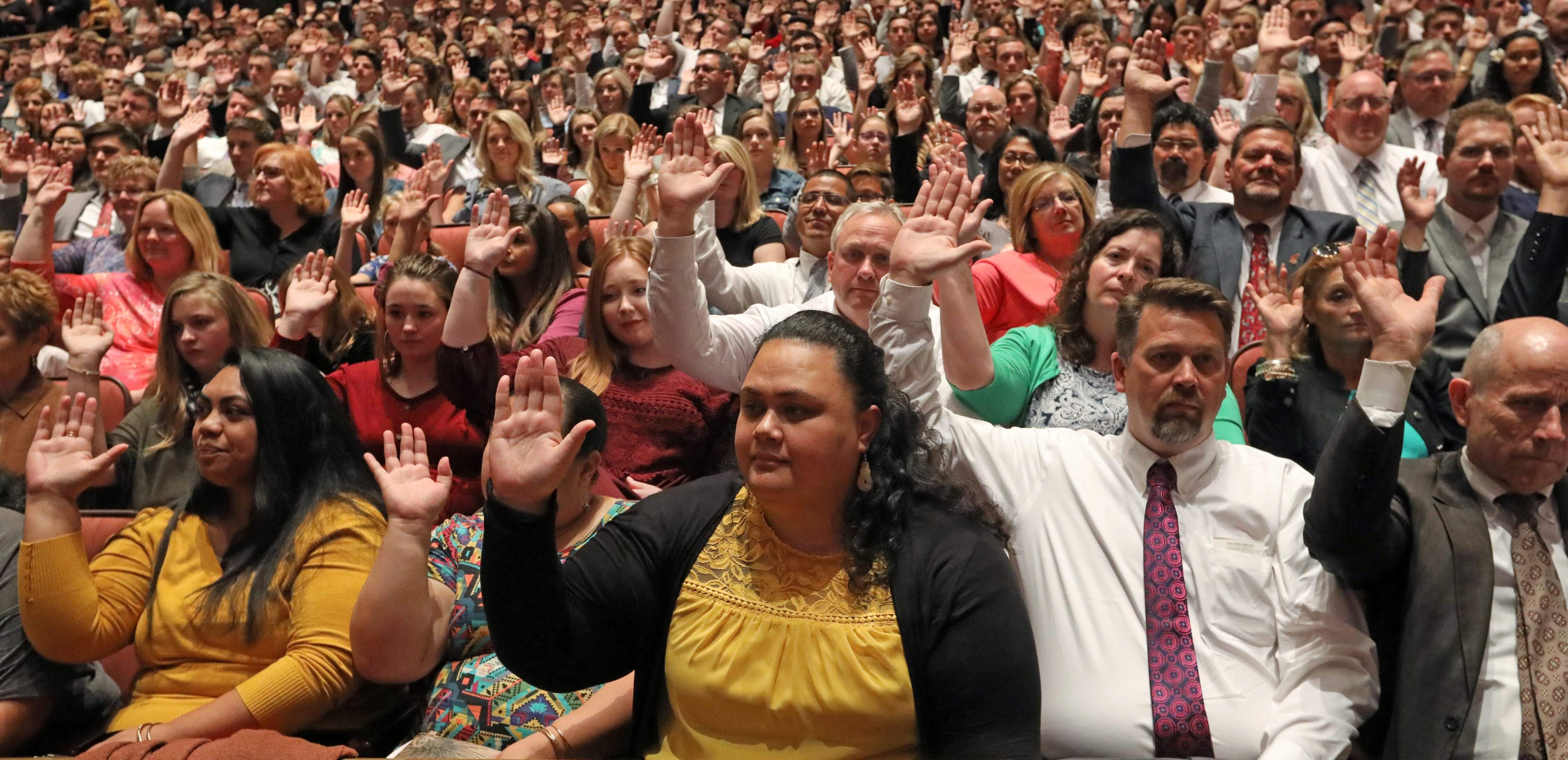 |
Each of our votes is important. It should not be automatic, like a knee-jerk reflex. We will be judged by how we vote to approve Church actions, business decisions where we have a say, and political candidates.
In the 1960's, shortly after students at the University of California at Berkeley were protesting various social causes, a meeting was called at the University of Utah for about 300 graduate teaching assistants to form a socialist activist group on campus to lead similar protests. I attended and witnessed them threatening to burn down the administration building. The whole idea appeared insane to me, but I did not stand up and speak against it, which required knowing technical rules of procedure. Just when the group seemed to be about to approve such illegal actions, because every speech had been in favor of the action, one student stood up and changed the minds of the whole group! When the vote was taken, almost no one favored the proposal. One person had swayed the entire audience. We were all relieved to have a champion of our beliefs.
We should take our right to vote very seriously, or others could vote to deny us the vote! Part of our responsibility is to be knowledgeable on the subject about which we are voting. Let us consider knowledge we should have about the organization of the Lord's Church, to prevent us from supporting illegitimate procedures.
It is very important to understand the structure of the Church at the time of Joseph Smith. All that is presented here is in revelations contained in the Doctrine and Covenants. The organization was given by revelation. If any of this organization changes, there should be a revelation from God, and so that all is done in order, that revelation needs to be sustained by the Church as new scripture.
It is also important to understand that in the time during which the Church was being organized, the organization grew a little at a time. Let's review that so that it is understood clearly.
When the Church of Christ (the original name) was organized on Tue 6 April 1830, there were only two elders presiding. Joseph Smith was the First Elder and Oliver Cowdery the Second Elder. Later, David Whitmer was also ordained to be an elder. The Lord told both Oliver and David that they had the same calling as the apostle Paul in New Testament (D&C 18:9). An apostle has the same level of priesthood as an elder, as stated in D&C 20:38, but an apostle has the special calling to preach the gospel and baptize, whereas, the calling of an elder is usually to preside over branches of the Church in certain locations.
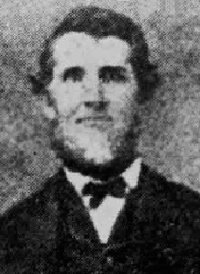 |
Then in March 1832, after several high priests had been ordained, the First Presidency was called, consisting of three high priests. Joseph Smith was the President of the Church, and he had two counselors. These three are to be called by revelation (D&C 102:9-10). The Lord explained that these two counselors were also presidents who shared all of the keys of presidency with President Smith, and that on occasions whenever President Smith could not attend, he could have either counselor act for him in his place (D&C 90:6, D&C 102:11).[5] That way, Joseph Smith did not need to be everywhere at once as the Church grew. Also, in the case of his death, the counselors already held the keys needed, so the transition could be made in an orderly fashion, in the event that the Prophet had not already designated his successor. As far as that is concerned the Doctrine and Covenants also states that, if revelation is lacking for any reason in calling a new presidency, the three high priests are to be chosen by the body of all of the high priests (D&C 107:22).
Then on Wed 18 December 1833, a Patriarch was called, being Joseph Smith Sr, the father of Joseph Smith. That actually requires a higher level of priesthood even than that a High Priest of the Melchizedek Priesthood. Joseph Smith ordained his father to be the Patriarch. Why did he have the authority to ordain someone to that priesthood? Because he had also received the Patriarchal Priesthood from Peter, James, and John! But it had not been necessary to invoke that level of priesthood until that time. The principal duty of the Patriarch is to give patriarchal blessings. It is the most spiritual office in the Church, which is probably the reason why it is considered the highest office.[6]
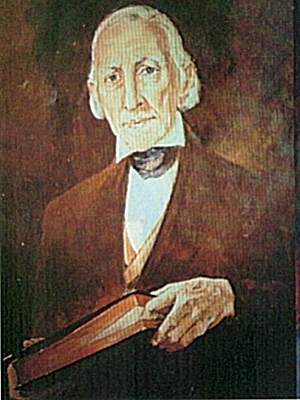 |
Then on 17 February 1834 the first stake of the Church was organized in Kirtland, Ohio, having a high council formed of high priests. The minutes of this meeting are contained in D&C 102.
Then in February 1835, the Quorum of Apostles was called. Many of them were at the priesthood level of elder, and some were high priests, but they were called to be a Traveling Quorum. Their duty was to go into all the world, baptize, and start new branches. They presided over those branches, but it is very important to understand that whenever a stake of the Church had been organized, they had no authority whatsoever to preside.[9] For example, they needed permission from local leaders to baptize their own children, just like other members. Thus, an apostle may be either an elder or a high priest, who has a special calling to preach the gospel outside of organized stakes in order to baptize new members.
Much of that, especially the part about the authority of the Twelve has changed in the LDS Church, so now let us look at what happened at the death of Joseph Smith.
Before Joseph Smith was martyred, he left rather clear instructions on what should occur at his death. First of all, the Church President should be a lineal descendant of his father, Joseph Smith Sr.[10] That was because they were the seed of Joseph of Egypt, who had been given the right of presidency, and so the brothers of Joseph Smith were all potential presidents, provided they were worthy, called by the Lord, and ordained to be high priests.
But none of his brothers had been officially called and ordained by Joseph Smith for that calling. Shortly before his death, in the presence of several witnesses, he ordained his son Joseph Smith III to someday be Church President. At that time the boy was only 11 years old, so it was understood that his presidency would commence when he became an adult. Thus, it was understood by many members that if Joseph died, his brother Hyrum would be President, and if he died also, then Samuel Smith, the next younger brother, would be President until Joseph III was old enough to fulfill his role.
Joseph Smith probably felt that the Church was prepared for the transition which he knew was coming, but it did not turn out as he had planned. Joseph and Hyrum were both murdered by a mob on Thu 27 June 1844, and their brother Samuel mysteriously got sick and died only a month later on Tue 30 July 1844.
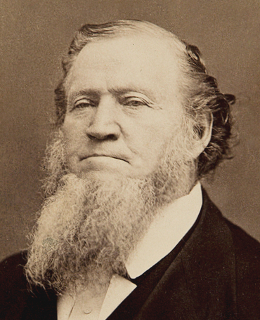 |
A very important point to understand is that many members were expecting Brigham to turn the presidency over to Joseph III at some future date, but in December 1847, it became clear to all that such would not be the case. Brigham convinced other members of the Twelve to vote to organize a new First Presidency, with him as president. That happened, and it was announced a few days later at a Church conference in Council Bluff, Iowa, where he was sustained. Ever since then, the LDS Church has been led by the Quorum of Twelve Apostles, with each in turn becoming president without having been ordained to be a true high priest, that is, by a man who could trace his High Priesthood lineage back to Joseph Smith. Virtually all LDS high priests go back to Brigham Young.
Okay, now it is test time. It is time for a quiz. Would you please answer the following question in your mind: why was the election of Brigham Young not according to the revealed order of the Church? See if you can think of three reasons.
. . .
Here are my answers:
Thus, after 1847, by which time several splinter group churches had already died, a movement began to start the Reorganized Church of Jesus Christ of Latter Day Saints. In 1860 Joseph III accepted the presidency of that church and presided until his death at age 82.
Now let us turn to a current problem in the fledgling Reborn LDS Church, which is a nickname for this Church of Jesus Christ of Latter Day Saints, headquartered in Brazil and headed by President Mauricio Berger.[12]
 |
The problem in Brazil has to do with depending too much on the Prophet to lead the Church. It is very similar to what happened in the early Church, when Joseph Smith was killed, the Church was too dependent on him and did not even know how to proceed without him.
On 26 May 1842 the Prophet Joseph made the following remarks to the Relief Society:
"the people should each one stand for himself, and depend on no man or men ... applied it to the present state [1842] of the Church of Jesus Christ of Latter Day Saints — said if the people departed from the Lord, they must fall — that they were depending on the Prophet, hence were darkened in their minds, in consequence of neglecting the duties devolving upon themselves"
— Joseph Smith (TPJS 237-238).
What prompted me to choose the topic for this article is that I received the following notice, sent from the Bishop, which, when translated into English reads:
"I am advising you that for my part, for an undetermined time there will no sacrament meetings held until our Prophet, Brother Mauricio, instructs us, or conducts the meetings, or determines that sacrament meetings should begin again."
— The Bishop, 27 Feb 2021.
I read that and recognized a problem. What if Mauricio died? Would this church shut down? We have been commanded to partake of the sacrament often to remember the Savior. Should we stop the sacrament because the Prophet cannot attend in person? Our fellowship in Utah has weekly sacrament meetings and it has never occurred to us that the Prophet might attend.
Last November I had been called to the First Counselor in the First Presidency, so it seemed to be my duty to discuss this issue with President Berger. I contacted him and he asked me to preside at the sacrament meetings until he returns. This was exactly the direction which the Bishop was apparently hoping for from the Prophet, namely, instructions about how to proceed. Hence the subject of this discourse needed to include the counsel not to depend too much on the Prophet and to remember that there is an organization in place to cover for him when he cannot attend. That is, he now has two counselors with the same keys to direct the work of this church (D&C 90:6), which verse was quoted to me by President Berger as applying to his two new counselors, even as in the days of Joseph Smith.
The problem I saw in this Reborn Church was not simply with that announcement. Some members contacted me who were very concerned by the fact that Mauricio had apparently disappeared and no one would tell them where he was. It apparently did not occur to them that it may be none of their business where he was. Perhaps it was a test for this church to see what would happen if the Prophet disappeared for a while. I also did not know where he was.
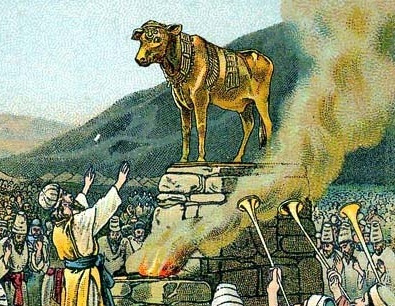 |
May we not make the same mistakes as those who have preceded us, because now we are nearly out of time as the Second Coming approaches. Let us all know the church government which has been revealed and let us all let our vote really count when asked to sustain Church leaders. We are expected to all take very seriously our personal stewardship with God!
With all of this in mind, here is my counsel for members in Brazil of this church:
The importance of understanding Church organization was discussed as a tool for all members to have to avoid being deceived by wolves in sheep's clothing who might attempt to take control of the Church.
The first point reviewed was the importance of taking one's vote seriously to approve or reject leaders when the law of common consent, which requires the consent of the Church, is being offered. And if you see important changes to the Church, especially covenants being changed such as using water instead of wine for the sacrament, and that being done without the common consent of the Church, it will be known that there is a serious problem with the leadership.
Then the revealed organization of the restored Church is reviewed so that if this organization is changed without a revelation being presented for the common consent of the Church, it is another warning sign of serious problems in the leadership. A summary of the organization is that there should be (1) a Patriarch, (2) a First Presidency of three Melchizedek high priests who can trace their High Priesthood lineage back through men who all had been ordained to it, and (3) a Quorum of Twelve Apostles, eventually. When the President of the Church is unavailable, his counselors have all the keys needed to preside. The Twelve are a traveling council to go throughout the world to preach and baptize, but have no presiding authority where there is a stake established.
Then the illegitimate presidency of Brigham Young was reviewed, which broke these rules when he (1) ignored the legitimate candidate Joseph Smith III, who should be given the first right of refusal to preside, (2) had never been ordained a high priest, and (3) was elected by apostles rather than high priests.
Then a problem in the Reborn LDS Church was discussed which is an example of what the Prophet Joseph Smith feared, namely, that Church members would depend on his presence too much. When Mauricio the Seer was required by the Lord to be absent for some time, the Bishop canceled sacrament meetings until President Berger could return. The Bishop apparently forgot that there is a mechanism for this Church to continue in operation without the President, the first line of action being that the counselors in the First Presidency have the same keys of presiding as does the president, and they may assume his responsibilities when needed.
Thus, if Church members are aware of Church organization and the importance of their vote in the law of common consent, and are looking for wolves among the flock, then they can be of one heart and mind in preventing the overthrow of this Church of Jesus Christ.